Children’s Emergency Dentistry – Reno, NV
Fast & Comforting Care When They Need it the Most
In the midst of a dental emergency, your child may cry and panic, but you’ll be able to confidently comfort them knowing that help is only a phone call away. We offer same day appointments for our patients in need, including children. We also offer several comforting amenities as well as safe children’s sedation to help them calm down and relax during this stressful situation.
Why Choose Alford Pediatric & General Dentistry for Pediatric Emergency Dentistry?
- Talented & Kind Dental Team Who's Ready to Help
- Dental Insurance & In Office Membership Plan
- Highly Experienced, Board Certified Pediatric Dentist
How to Handle Common Dental Emergencies

The first step you should always take if your child sustains dental trauma is to call our office. We’ll schedule an appointment for as soon as possible and provide you with over the phone first-aid guidance to prevent your child’s smile from sustaining additional damage. We’ve also included some helpful information below to keep your child comfortable until you reach our practice.
My Child Has a Toothache

Have your child take an over-the-counter (OTC) medication to lessen any pain associated with a toothache and bring them to the practice as soon as possilbe. You can also have them place a cold compress on the same side of their face as the tooth, but be sure to use it in 10 minute intervals so their skin isn’t harmed.
My Child Chipped/ Broke a Permanent Tooth
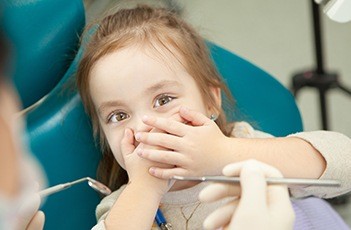
Have your child rinse their mouth with warm water and try to find any large pieces of the tooth that you can. Tell them to not chew with the remaining tooth, and if it has a rough edge that is causing irritation, it can be covered with a piece of dental wax. If you are able to retrieve any pieces of the broken tooth, try your best to preserve any tooth fragments in saliva or milk.
My Child Knocked Out a Baby Tooth
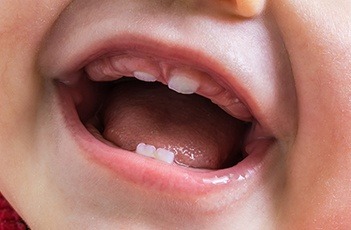
While a knocked out baby tooth is not always a cause for alarm, you should still bring your child to come see us so we can make sure their gums/surrounding teeth haven’t sustained any trauma as well. Have them hold a tissue near the socket to control any bleeding, and if they feel pain, they can take an OTC medication. DO NOT attempt to re-implant the baby tooth, as you can risk injuring the developing permanent tooth.
My Child Knocked Out a Permanent Tooth
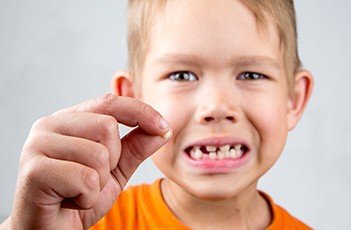
You need to move fast in this situation, as we can re-implant an adult tooth, but time is of the essence after it has been dislodged. Find the tooth, rinse off any debris, and try to place it back into the socket. If this isn’t possible, they can store it in their cheek, or you can put it in a container with some saliva or milk. Just be sure they don't swallow the tooth!
My Child Lost a Filling
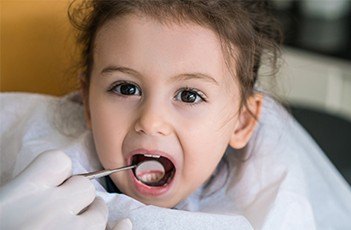
If a filling falls out, it will need to be replaced with a new filling or possibly a crown. Give us a call so we can get you in ASAP. In the meantime, tell your child to avoid chewing with the tooth and keep the area clean until we can repair it.
How to Help Your Child Prevent Dental Emergencies
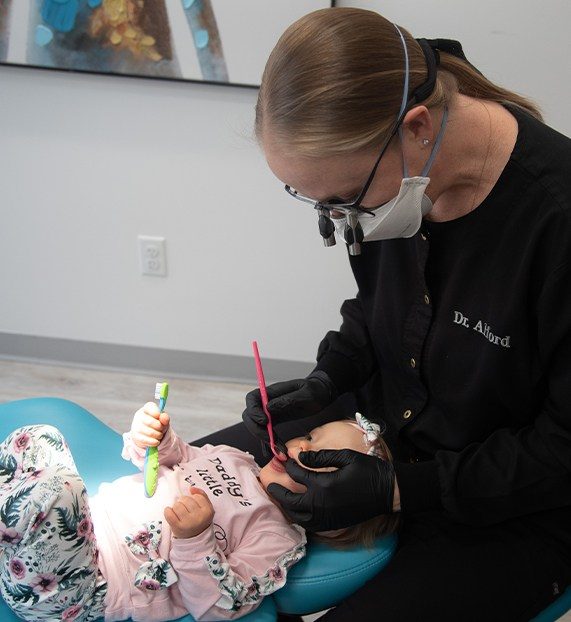
- Do you have a little athlete at home? Make sure they wear a mouthguard every time they play to keep their teeth safe from unexpected impacts.
- Don’t let your child chew on extremely hard items like ice, popcorn kernels, rock candies, their fingernails, etc.
- Is your child trying to open a package and not having any luck? Before they start using their teeth, be sure to use the scissors!
- Make sure they brush 2-3 times a day, floss at night before they go to bed, and come to see us at least once every six months. This will stop those small problems that could turn into an emergency down the road.
The Cost of Treating Your Child’s Dental Emergencies
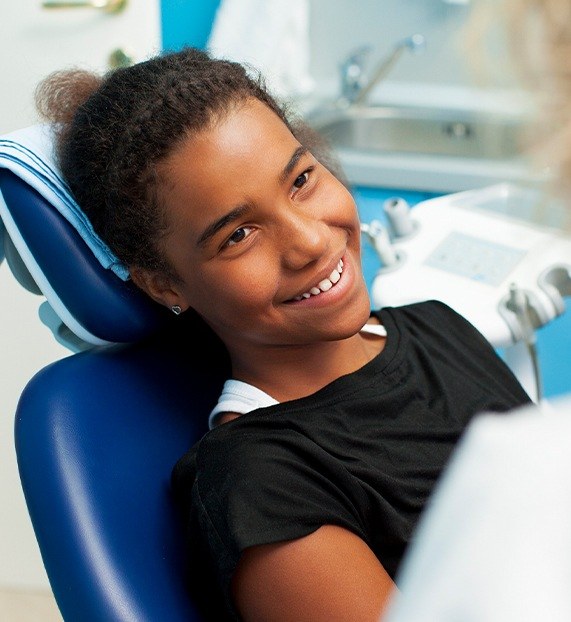
Every single child and every single dental emergency is unique, and because of this, there is no fixed price for urgent dental care. When you bring your child to see us, we’ll quickly evaluate their situation and recommend treatments based on what will get them out of pain the quickest and offer the best long-term prognosis. To make these visits more affordable, our practice accepts insurance, offers flexible financing, and we even have our own In-House Membership program that makes it easy to save.
Pulp Therapy

When a cavity is large and involves the nerve of a baby tooth, the nerve (pulp) can be partially (pulpotomy) or completely (pulpectomy) removed at the same time as the cavity. An agent is then applied to prevent bacterial growth and calm any remaining nerve tissue, and a final restoration in the form of a crown is placed. This “nerve treatment” is used to maintain the tooth to prevent premature loss and need for space maintenance.
